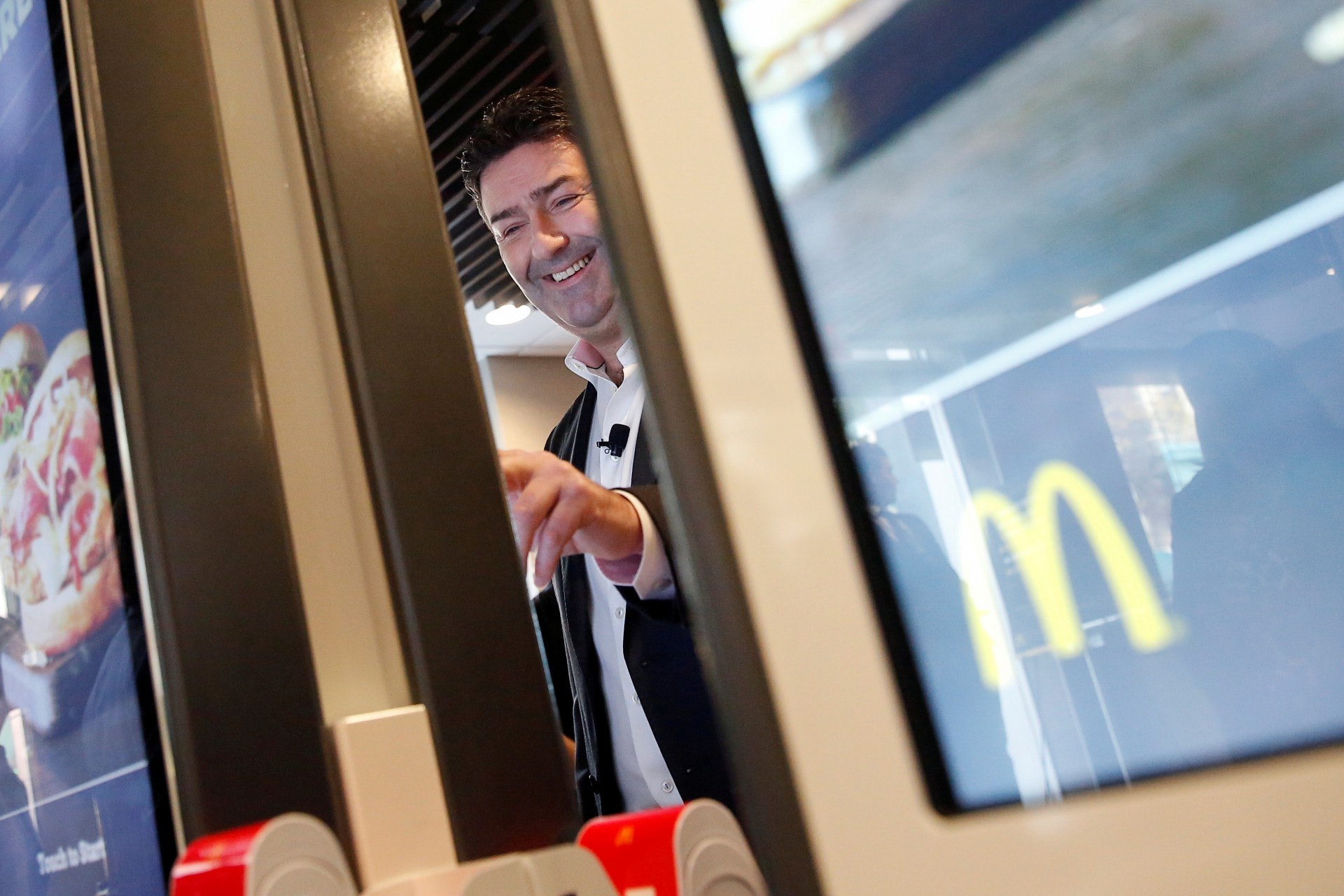Steve Easterbrook, the British chief executive of McDonald’s, an international fast food restaurant, was fired for a relationship with a subordinate in violation of company policy. Eastbrook will receive a six-month severance payment of up to $675,000 (approximately HK$5.29 million).
It is widely believed that McDonald’s dismissed Eastbrook and resolved a public relations crisis. However, some people think that Eastbrook is only committing the mistakes that will only be made in the post-MeToo era.
McDonald’s explained that Eastbrook’s behavior violated the company’s non-fraternization policy. McDonald’s statement stated that Eastbrook and a subordinate “developed a close relationship with each other and exposed their own poor conspiracy.” (demonstrated poor judgment involving a recent consensual relationship with an employee)
Gold CEO’s performance is bright
In many companies, non-social policies are clearly defined employee rules, not new. However, whether this regulation will be strictly enforced is related to the company culture. In June last year, Brian Krzanich, former chief executive of semiconductor company Intel, announced his resignation because of his personal affair with a subordinate employee. The official statement mentions the relationship between Ke Zaiqi and his subordinates, violating Intel’s internal non-social policy.
This McDonald’s also fired Eastbrook for similar reasons. The internal email sent to employees by Eastbrook mentions that based on the values of the company, you need to be responsible for things.
The reason why McDonald’s is this time is “a strong man’s broken arm”, because Eastbrook can be said to be the “most successful CEO” of McDonald’s. He led McDonald’s to achieve intelligent transformation, reform of menus, and development of the delivery market. Since he took office in 2015, McDonald’s stock has almost doubled. Even so, the divorced president, Eastbrook, was immediately dismissed from the McDonald’s board of directors because of his relationship with his subordinates. Although it is widely believed that McDonald’s practices are wise, the severity is not expected.
European and American media: McDonald’s show “perfect public relations”
Regarding the mainstream media in Europe and the United States, McDonald’s quickly dismissed Eastbrook’s quick response when the incident was not yet fermented, and generally agreed that McDonald’s perfectly demonstrated the company’s public relations skills.
“Bloomberg” pointed out that the decision of the McDonald’s Board of Directors showed a similar violation of the Code, regardless of the rank of the class is “zero tolerance”, for the company to establish a healthy corporate culture that values accountability and fairness.
The Washington Post believes that McDonald’s practice shows that the chief executive violated the ethical rules of black and white and immediately dismissed on his own initiative, which is the only public relations practice that can be done.
According to Time magazine, McDonald’s itself is in the midst of a scandal of sexual harassment in the workplace. In this case, the main consideration behind the board decision to dismiss Eastbrook is to avoid the Eastbrook incident. Fermentation, the company continues to sink into the whirlpool.
Grassroots employees at certain McDonald’s stores earlier filed lawsuits alleging that there were cases of direct harassment of property traits in the store. In May, the American Civil Liberties Union announced that 25 employees from McDonald’s US stores filed complaints with the US Fair Employment Opportunity Commission about sexual harassment in the store. McDonald’s was accused of not responding positively to workplace sexual harassment.
McDonald’s filed a dismissal with Eastbrook’s employee code that the boss could not associate with his subordinates. However, some of the comments touched on the power of the company’s code to regulate the staff’s power: Should the company’s power extend to the private feelings between employees?
No boss’s subordinate love is stricter than the British workplace
“Daily Mail” reporter Ruth Sunderland believes that Eastbrook is a victim of American workplace culture. In the current environment of “#MeToo”, American society is basically zero-tolerant of any insurgency. Even the relationship between the CEO and colleagues can be dismissed – even if both parties are single and sympathetic. Their reason is: because of the innate power imbalance between the chief executive and the subordinates, there will be potential exploitation and abuse of power.
Ruth Sunderland pointed out that Americans’ critique of the emotional relationship between their superiors and employees is more cautious than in the UK, let alone France and Italy. She believes that in the UK, there are countless examples of the relationship between the boss and the secretary, but it is rarely seen by outsiders.
“The Guardian” reporter Jessa Crispin wrote a question: Under the “#MeToo” trend, the outside world often uses the “power” language to discuss the emotional relationship in the company. “The asymmetry of power between participants (in emotional relationships) is often considered a bad thing.”
“If it is necessary to prevent sexual harassment in the workplace and impose strict rules to restrict the emotional relationship between the superior and the subordinates, it is better for the company to deal with the real cases of each employee’s complaint.”
Regardless of the subsequent discussions, McDonald’s this practice, in fact, can indeed protect McDonald’s from the public relations crisis. However, in this case, should it be a reference material for other companies to encounter similar situations in the future?











